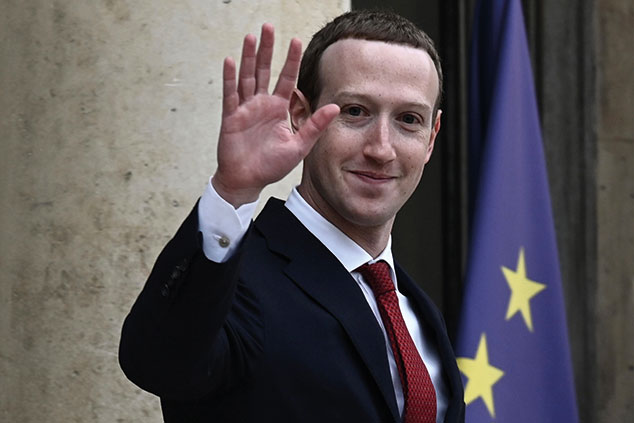
In his 1976 book, The Denationalisation of Money, economist Friedrich Hayek made the case that businesses should issue their own currencies to compete freely for use against government currencies. The result would be a general improvement in monetary standards. Hayek’s vision took a step closer to reality this week as social media giant Facebook published the white paper for its own new currency: Libra.
Hayek envisaged that the most successful money in his scenario would be based on a basket of commodities – and thus its value would be relatively stable. Facebook appears to be taking his advice. It is not backing its coin with commodities, however, but with “a collection of low-volatility assets”. Libra will effectively be backed by a basket of currencies. This would make it not dissimilar to the International Monetary Fund’s special drawing rights (SDR) – foreign exchange reserve assets which are part-US dollar, part-euro, part-yen and part-sterling. It’s more like an exchange-traded fund (ETF) than a cryptocurrency. Indeed, rather than follow the bitcoin model, Libra is following the “stablecoin” model, in which cryptocurrencies are backed by actual currencies – where, for example, you might only issue one crypto unit for every $1 in the bank. Thus Libra will not be highly volatile like bitcoin, but will move more like a major government currency.
What is Facebook planning?
The goal is to create an international payments system which leverages Facebook’s vast user base. Facebook says it has 2.4 billion open accounts – one in every three people on the planet. WhatsApp meanwhile has more than 1.5 billion users – as many as 300 million in India alone. Users will be able to send and receive money using WhatsApp or Facebook messenger, just as they send and receive messages. This could turn Facebook’s social network into something far bigger and more powerful: an economic network.
There are many frightening implications. If you fear that Facebook has influenced the outcomes of recent general elections, how much more powerful does it become when it has an international money system with more than two billion users? How can a government hope to tax and regulate it, when it no longer has control of money? And what are the implications for privacy? If you’re a Facebook user, it probably already knows more about you than your spouse. How about when it knows the details of your spending too?
Facebook has framed the idea with the usual Silicon Valley guff of helping “the unbanked” – and it is likely that Libra will liberate many of the financially excluded, as soon as they get their first smartphone, just as Kenya’s M-Pesa did in East Africa. But one suspects that Facebook’s ultimate goal is not nearly so altruistic.
Libertarian purists don’t like Libra because it is not properly decentralised in the way that bitcoin is, despite all sorts of crypto buzz words appearing in the white paper. The left doesn’t like it because it signals yet more power and influence heading the way of large tech.
Politics versus convenience
But, whatever ideologues might think, in the marketplace convenience usually wins, and if Facebook can offer a cheap, easy and efficient way of sending money from phone A to phone B, across borders if necessary, then its potential is huge. You’ll be able to pay your taxi fares in Libra, your Booking.com hotels and holidays, your eBay purchases, your Spotify subscription, your phone bill – all at cheaper rates than standard banks and credit-card companies. A fully integrated payments system within a social network will create a lot of opportunities for a lot of people. It may also provide a solution to the as-yet-unsolved (to my mind at least) problem of how to monetise digital content online.
Unsurprisingly, the authorities, particularly the European Union, are up in arms. French finance minister Bruno Le Maire said Libra must not “become a sovereign currency”. G7 nations are already establishing a group to examine the risks the currency poses to the financial system. It’s as though they already knew it was coming.
But Facebook won’t be short of lobbying power – as well as everyone’s “favourite” politician, Nick Clegg, Facebook has hired bank lobbying expert Ed Bowles, who joins the company from Standard Chartered in September. Facebook is well aware of its need to get regulatory acceptance for Libra. It has already set up the Libra Association in Switzerland to govern the coin, and has partnered with 28 corporations, including Visa, Mastercard, PayPal, eBay, Spotify, Vodafone and Uber. The presence of these established firms in the governing body is designed to gain trust in the system from both regulators and users. It’s also worth noting who is absent from the association. No Apple, no Google, no Amazon and – perhaps most significantly – no banks.
Facebook itself will not be part of the body, though it will appear via its subsidiary, Calibra. Calibra is the Libra wallet (and controller of its users’ financial and social data). Like Facebook and WhatsApp, Calibra will be free. Don’t forget the golden rule – “When something is free, you are the product.”
In short, Libra is another step in the evolution of Big Tech as it grows more powerful than national governments. The implications are enormous.